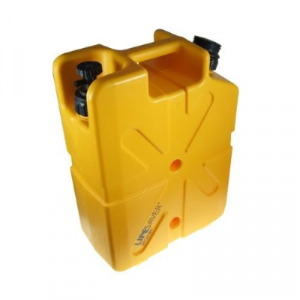
Agriculture
December 29, 2023
LifeSaver® Jerrycan 20000UF
Read SolutionImplemented by
Lifesaver
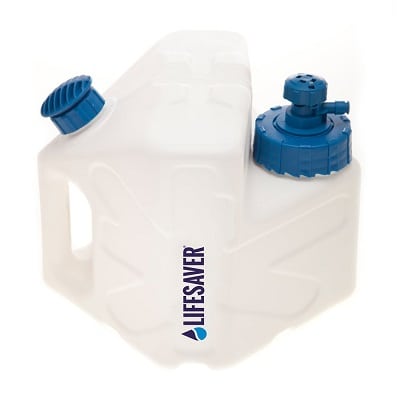
Updated on December 29, 2023
·Created on September 27, 2018
This is a 5 L water storage container with a built-in ultrafiltration membrane and activated carbon filter to treat drinking water.
The LifeSaver® Cube is a 5 L portable raw water storage container with an ultrafiltration membrane and activated carbon filter for drinking water treatment, designed by Icon Lifesaver® Systems, Ltd. to remove viruses, bacteria, and protozoa and for families who are away from a mains water supply or for emergency response use by aid organizations and governments.
Target SDGs
SDG 6: Clean Water and Sanitation
SDG 3: Good Health and Well-Being
Market Suggested Retail Price
$124.95
Target Users (Target Impact Group)
Household
Distributors / Implementing Organizations
Lifesaver directly through its online page and response to disaster events in collaboration with organizations such Oxfam and the UK Department for International Development.
Competitive Landscape
Regions
Worldwide
Manufacturing/Building Method
Manufactured by LifeSaver in the UK.
Intellectural Property Type
Patent
User Provision Model
Users can obtain the product from online distributors and the manufacturer's webpage. Icon LifeSaver also works with international organizations, charities, and governments including DFID & Oxfam to help distribute Lifesaver technology.
Distributions to Date Status
2,300 units have been distributed by Oxfam in South Sudan as of August 30, 2016.
Target use case
Individuals and households
Manufacturer-specified flow rate (L/hr)
60 L
Bacteria reduction
6 log
Type of membrane filtration
Ultrafiltration
Virus reduction
4 log
Protozoa reduction
3 log
Heavy metals and/or arsenic reduction
Unknown
Maximum recommended influent turbidity level (NTU)
Unknown
Effluent turbidity levels (NTU)
Unknown
Material of construction
Plastic
Safe water storage capacity (L)
None
Manufacturer-specified lifetime volume (L)
5,000 L
Design Specifications
The LifeSaver Cube is designed to be portable and robust. The water is forced through the 15-nanometer filter via pressurization produced with a built-in hand pump in the cap. The activated carbon filter for chemical residuals is designed to filter 100 liters and will last 1 month. According to the instruction manual, the membrane cartridge has FailsafeTM technology that prevents any water from passing through the filter once it has reached the end of its service life.
Technical Support
Contact the manufacturer
Replacement Components
Activated carbon filters and membrane filter cartridges are available from the manufacturer.
Lifecycle
All parts are replaceable with a maximum membrane cartridge lifespan of 5,000 liters or 4.5 years for a family of 5 filtering 3 L of water per day. At the end of the life of the membrane cartridge, no water will flow and a replacement cartridge is required. The LifeSaver Cube includes a 2-year international warranty.
Manufacturer Specified Performance Parameters
The filter is designed to filter 5,000 L under conditions with low turbidity while removing 99.99% of viruses, 99.9999% of bacteria, and 99.9% of cysts.
Vetted Performance Status
The Cube was evaluated by BCS laboratories for virus, bacteria, and cyst reduction. Oxfam field tested the Cube and reported on logistics of distribution, ease of use, and design drawbacks as experienced in South Sudan.
Safety
No specific known safety risks. Potential hazards include the consumption of unsafe water that can lead to gastrointestinal problems due failure to follow use and maintenance instructions of the user manual.
Complementary Technical Systems
Also a pre-filter is recommended for turbid water, as increasing turbidity lowers the flow rate of the Cube to 0.5 L/min and lower at greater than 5 NTU. Safe water storage container for treated water and optional activated carbon filter to remove chlorine, taste and odor.
Academic Research and References
Agus McBride, 2016, “LIFESAVER CUBE Oxfam’s Experience in South Sudan”, OXFAM.
Betts, Al. and Bloom, L., 2014, Humanitarian Innovation: The State of the Art, Ocha, United Nations Office for the Coordination of Humanitarian Affairs.
Acquistapace, A., Bastable, A., Lay, J. F., McCubbin, C. N., and Vahanian, A., 2018, “Household water lilters and waterborne epidemics: a case study from South Sudan,” Loughborough University.
Bessant, J., Trifilova, A., and Rush, H., 2016, “Case studies of humanitarian innovation, XXVII ISPIM Innovation Conference – Blending Tomorrow’s Innovation Vintage”, Porto, Portugal.
“LifeSaver Cube,” LifeSaver, 20-Apr-2017. Available: https://iconlifesaver.com/product/lifesaver-cube/
“LifeSaver Water Purifiers sent to Indonesia,” LifeSaver, 05-Oct-2018. Available: https://iconlifesaver.com/news/lifesaver-water-purifiers-sent-to-indonesia/
“Lifesaver Cube: Oxfam’s experience in South Sudan,” Oxfam Policy & Practice, 22-Jun-2023. Available: https://policy-practice.oxfam.org/resources/lifesaver-cube-oxfams-experience-in-south-sudan-619051/
“Department for International Development,” GOV.UK. Available: https://www.gov.uk/government/organisations/department-for-international-development
“Goal 6,” Sdgs.un.org. Available: https://sdgs.un.org/goals/goal6
“LifeSaver Cube,” LifeSaver, 20-Apr-2017. Available: https://iconlifesaver.com/product/lifesaver-cube/
“Portable Water Purification,” LifeSaver, 31-May-2018. Available: https://iconlifesaver.com/
M. Pritchard, “Water container,” 20150041383:A1, 12-Feb-2015.
“LifeSaver Cube,” LifeSaver, 20-Apr-2017. Available: https://iconlifesaver.com/product/lifesaver-cube/
“Product Manuals/Test Results,” LifeSaver, 22-Jun-2018. Available: https://iconlifesaver.com/info/product-manuals-and-test-results/
Iconlifesaver.com. Available: https://iconlifesaver.com/wp-content/uploads/2018/07/108457.004-ICON-LifeSaver-Revised-Cube-Manual-FINAL.pdf
“Contact,” LifeSaver, 07-Jun-2018. Available: https://iconlifesaver.com/contact/
“LifeSaver Cube Replacement Cartridge Foil Sealed,” LifeSaver, 21-Apr-2017. [Online]. Available: https://iconlifesaver.com/product/cube-replacement-cartridge-foil-sealed/
“Product Manuals/Test Results,” LifeSaver, 22-Jun-2018. Available: https://iconlifesaver.com/info/product-manuals-and-test-results/
“U.S. Environmental Protection Agency,” US EPA. Available: https://www.epa.gov/home
“Product Manuals/Test Results,” LifeSaver, 22-Jun-2018. Available: https://iconlifesaver.com/info/product-manuals-and-test-results/
Compliance with regulations
Meets an adaptation of NSF Protocol 231 for microbiological water filters based on recommendations of the U.S. Environmental Protection Agency (EPA).
Evaluation methods
Filters have been tested by a third-party in the laboratory and Oxfam in the field for Bacteriophage MS2 (ATCC 15597-B),Bacteria Raoultella terrigena, MS-2 Bacteriophage, and Fluorescent microspheres.
Other Information
Lifesaver Cube User Manual. Lifesaver has other products including the Lifesaver bottle, emergency preparedness packs, Lifesaver jerrycan, and Lifesaver C2.

Agriculture
December 29, 2023
Implemented by
Lifesaver
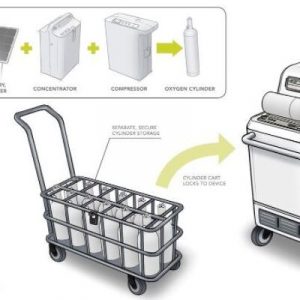
Agriculture
March 8, 2024
Implemented by
Lean Med
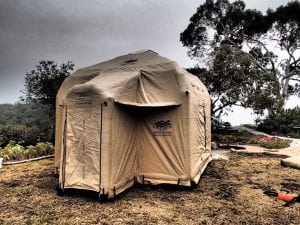
Agriculture
March 4, 2024
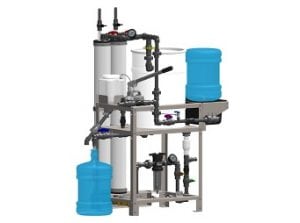
Agriculture
January 8, 2024
Implemented by
Healing Waters International

Agriculture
January 3, 2024
Implemented by
Department of Civil and Environmental Engineering, University of Virginia
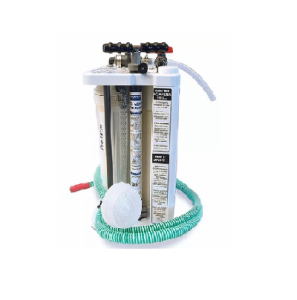
Agriculture
December 28, 2023
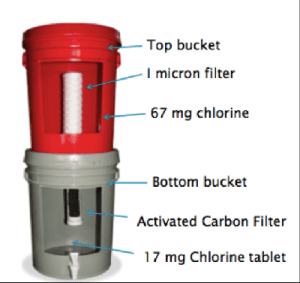
Agriculture
January 24, 2024
Implemented by
Gift of Water
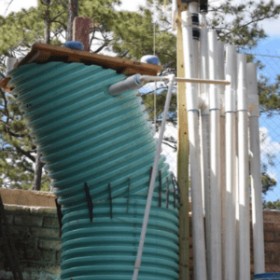
Agriculture
January 18, 2024
Implemented by
Agua Clara LLC

Agriculture
January 26, 2024
Implemented by
Warka Water
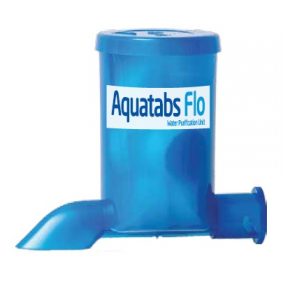
Agriculture
January 27, 2024
Implemented by
Medentech Ltd
Have thoughts on how we can improve?
Give Us Feedback
– The line “It is sold online by LifeSaver and distributed by Oxfam in South Sudan” seems to be one example of where it was implemented, but this shouldn’t appear in the Product Description.
– Minor, but I would change “Online for USD115” to be consistent with how prices are listed across other porducts
– “End of life indicator (yes/no): Yes. The filter will automatically stop working after 5,000 Liters have been filtered”: I find this hard to believe… how does that happen? Does it measure that volume of water, or does it clog after a long time and then you’re supposed to stop?